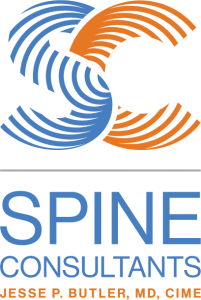The discs in your spine become more vulnerable to tearing with even a slight twist as we age. As a result of age-related wear and tear, disk tears develop due to disc degeneration.
Many patients cannot determine the reason for disc herniation. Lifting things with back muscles instead of leg muscles, or twisting when lifting, can cause a herniated disc. Accidents such as falls or hits to the back are only sometimes the reasons for herniation.
In many cases, a herniated disc causes no symptoms. Those that do experience symptoms tend to improve over time. Despite this, it’s important to understand what risk factors can lead to disc herniation.
Aging
All discs are subject to some degradation over the course of their lifetime. A disc loses a certain amount of water as it ages, making it less flexible and decreasing its cushioning abilities.
With time, the cartilage that makes up the outer layer of a disc may become frayed or thin, becoming more susceptible to stresses that might cause rips and tears.
The passage of time cannot be stopped, but how you age can be controlled. Having a healthy diet can benefit your muscles and bones as you age, and might help you maintain a strong musculoskeletal system.
Sedentary Lifestyle
Sitting and driving for long periods of time can cause back disorders, including ruptured discs and pinched nerves. You can strain your muscles when you slouch at your desk, contributing to back pain.
Moderate-intensity exercise is crucial to maintaining your spine’s health and strengthening the tissues that support it. Exercise at least 150 minutes a week to maintain the integrity of your musculoskeletal system.
Place the computer screen at eye level in order to avoid looking up or down while sitting at your desk using a chair with lumbar support. Be sure not to cross your legs and to keep your feet planted on the floor. It will help relieve back strain.
Consume more water to increase your urge to go to the bathroom more often and to keep your body hydrated. By keeping your body hydrated and flexible, you will reduce wear and tear and keep your body healthy.
Injury
Every person is required to transport large, heavy items from time to time. A disc rupture can be caused by any physical activity that puts excessive strain on the spine, especially in construction and manual labor jobs that requires extensive physical lifting.
When you lift weight incorrectly, you use your arms and back muscles instead of your larger, stronger leg muscles, which increase your chances of developing disc herniation. If you lift with your back, you increase your risk of injury. Herniating a disc can occur if you twist while lifting or lowering an object.
An injury to the spinal disc can be exacerbated by a sudden or severe twisting action, such as a bending while picking up packages. Exercises that push your neck and upper body beyond their capabilities, such as trunk twists with heavy weights, can pull your body farther than your back can comfortably bear.
Body weight
Weight plays a role in disc herniation because your spine supports your entire upper body. A 2016 study found a connection between high rates of obesity and lower back pain.
Obesity not only puts a strain on your joints and spine, but it also puts you at risk for osteoarthritis. Osteoarthritis is a degenerative condition in which the cartilage between joints wears away, making the bones grind against each other.
Smoking
Several studies have linked smoking cigarettes to increased risks of disc herniation. Smokers are more likely to develop degenerative disc disease and that smoking can worsen pre-existing degenerative disc disease. As a result of smoking, your spinal discs get less oxygen, which may lead to faster degeneration and increased risk of herniation.
If you cough and are a smoker, you are more likely to experience back discomfort. When you cough, your body moves abruptly, which increases pressure between the discs. This strain on the discs and spine makes them more likely to bulge and rupture especially in a spine already compromised by the effects of smoking.
Genetics
Herniated disks are predisposed to develop in some people because of genetics. Recent studies suggest that hereditary factors could be involved in disc degeneration. Herniated discs are more likely to occur in people with certain DNA linked to degeneration of vitamin D, sciatica, or lumbar disc herniation. Although you may not entirely prevent it, keeping up a healthy lifestyle can help lower the risk of low back pain.
Treating Disc Herniation
You can seek medical care if you develop a herniated disc. A herniated disc can cause inflammation, so resting is recommended during the early stages. Herniated discs can be treated non-invasively and minimally invasively. In extreme cases, surgical treatment may be your best option.
The best way to prevent disc herniation is to maintain a healthy weight, do aerobic and core strengthening exercises, and avoid smoking. A well-rounded lifestyle that includes exercise and weight control can save your back and prevent pain.

